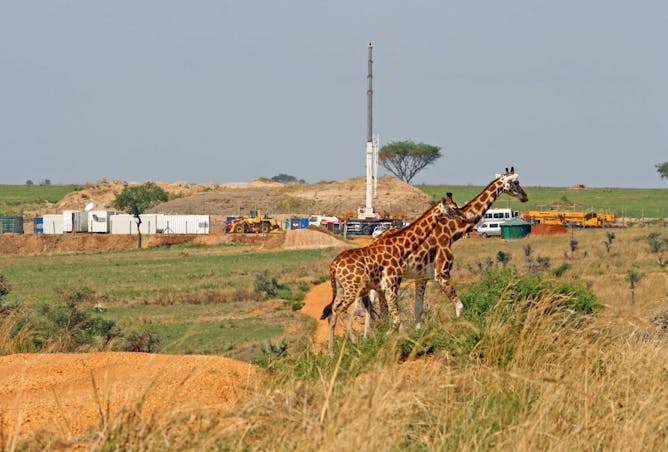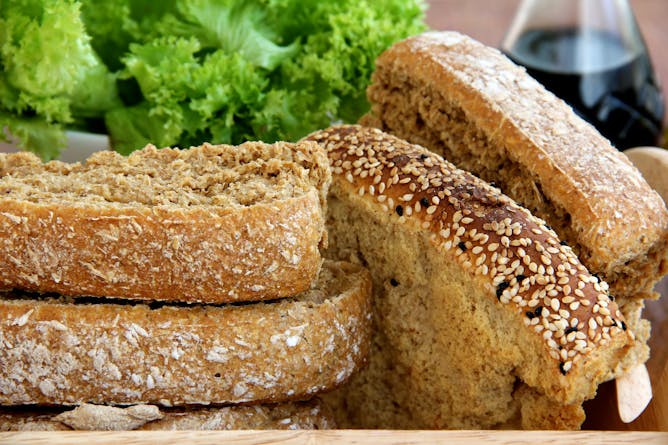|
|
|
Editor's note
|
|
All over the world, threatened species are finding themselves in harm’s way as humans build ever more homes, farms and industrial infrastructure. James Allan and colleagues looked at more than 5,000 species and found a quarter of them have almost nowhere left to run, with at least 90% of their range impacted by human development. Their new maps reveal Southeast Asia is the global hotspot for this problem, whereas the ‘coolspots’ are the
Amazon, Andes, eastern Himalayas, and Liberia.
Also today, when we want to lose weight quickly, we’re usually focused on restricting our calorie intake above all else. But it’s not a sustainable plan. We miss out on essential nutrients and, as soon we we go back to old ways, we gain weight. But there are ways to combine weight loss with healthy eating, as Yasmine Probst and her colleagues explain.
|
Michael Hopkin
Editor: Energy + Environment
|

|
|
Top story
|

Human activity threatens many species across Africa’s savannahs.
Paul Mulondo/WCS
James Allan, The University of Queensland; Christopher O'Bryan, The University of Queensland; James Watson, The University of Queensland
New research looked at human impacts on more than 5,000 threatened species and found that a quarter of them have almost nowhere left to go to escape from the threats posed by human development.
|

You don’t have to quit bread, but make sure it’s wholegrain.
Shutterstock
Yasmine Probst, University of Wollongong; Elizabeth Neale, University of Wollongong; Vivienne Guan, University of Wollongong
When it comes to weight loss, there's no such thing as a quick fix. But some foods will keep you feeling fuller for longer.
|

India’s airstrikes caused some damage inside Pakistan.
AMIRUDDIN MUGHAL/AAP
Stuti Bhatnagar, University of Adelaide; Priya Chacko, University of Adelaide
It started on February, 14 when a suicide attack killed more than 40 people in the Indian controlled part of Kashmir. Now, Pakistan and India's conflict over the disputed region is heating up again.
|
Health + Medicine
|
-
Nicholas J Clark, The University of Queensland; Charles Caraguel, University of Adelaide; Jane Heller, Charles Sturt University; Ricardo J. Soares Magalhaes, The University of Queensland; Simon Firestone, University of Melbourne
Q fever is a flu-like infection that spreads to people from animals. The bacteria that causes it can withstand harsh environmental conditions – in particular, drought.
|
|
Politics + Society
|
-
Craig Jeffrey, University of Melbourne
India’s youths, an eighth of the world’s population, are facing a growing unemployment crisis. Australia must engage with this global demographic, for our own benefit and theirs.
-
Adrian Beaumont, University of Melbourne
Weak economic data and sluggish wages have contributed to the Coalition's poor showing in the latest Newspoll, which gives Labor a 54-46 lead on two-party preferred.
|
|
Cities
|
-
Mathew Hounsell, University of Technology Sydney
Every major transport study since the 1970s has identified Sydney's western rail corridor as the priority for an upgrade. The latest patronage figures confirm that's where the need is greatest.
|
|
Business + Economy
|
-
Monika Kansal, CQUniversity Australia; Ameeta Jain, Deakin University; Mahesh Joshi, RMIT University; Pawan Kumar Taneja, FORE School of Management
India requires large enterprises to spend 2% of their profits on corporate social responsibility projects. It's a bold idea, but looks doomed to fail.
|
|
Arts + Culture
|
-
Marguerite Johnson, University of Newcastle; James Bennett, University of Newcastle
Dorothy's slippers, worn by Judy Garland in The Wizard of Oz, have long been celebrated as a 'queer object'. With one pair recently restored at a price of $300,000, do they deserve such adulation?
-
David Tombs, University of Otago
Interviews with survivors of sexual abuse by clergy show that recognising Jesus as an abuse victim might help the Catholic church to change its culture and response to the abuse crisis.
-
William Peterson, Flinders University
In this danced-through reimagining of the world’s most-popular opera, we are pulled into the characters' inner turmoil.
|
|
Science + Technology
|
-
Nicholas Agar, Victoria University of Wellington
We're on the way to making machines that appear and act human, and can think for themselves. So how will they react to our behaviour towards them, especially the bad behaviour?
-
Sacha Molitorisz, University of Technology Sydney
Facebook says it's changing. Time will tell. In the meantime, privacy is under threat, news and journalism are suffering, and the algorithms employed by digital platforms are worryingly opaque.
|
|
Environment + Energy
|
-
Michelle Grattan, University of Canberra
O'Sullivan rejected Morrison's Monday argument that it would be
impractical for the federal government to underwrite a coal-fired
project in Queensland because the Palaszczuk government would veto it.
-
Andrew Blakers, Australian National University
By investing in solar panels and going electric for your motoring and heating, you can directly offset your greenhouse emissions. And in the long run, the upfront costs will repay themselves.
|
|
| |
Featured jobs
|

|
University of Melbourne — Parkville, Victoria
|

|
RMIT University — Melbourne, Victoria
|

|
Griffith University — Nathan, Queensland
|

|
Macquarie University — North Ryde, New South Wales
|
|
|
|
Featured events
|

|
MacLaurin Hall, The Quadrangle, Camperdown , Sydney, New South Wales, 2006, Australia — University of Sydney
|

|
The University of Sydney, Sydney, New South Wales, 2006, Australia — University of Sydney
|

|
RMIT Activator, Level 2 102 Victoria Street, Carlton, Victoria, 3053, Australia — RMIT University
|

|
The University of Sydney, Sydney, New South Wales, 2006, Australia — University of Sydney
|
|
|
|
| |
| |
| |
| |
| |
|
|
|
|
|
|
|